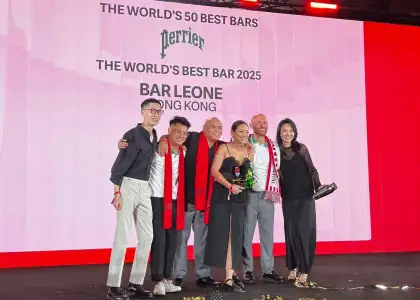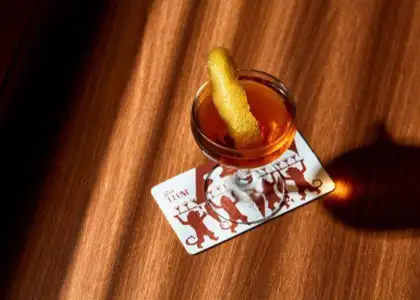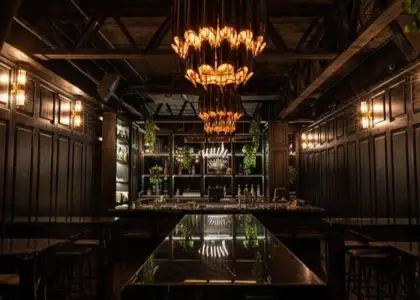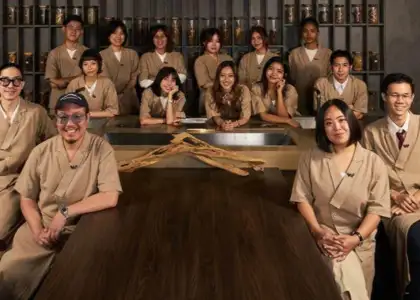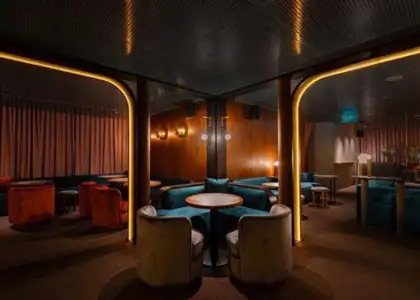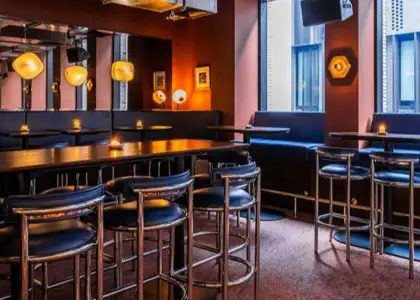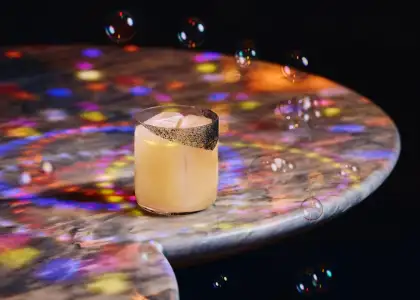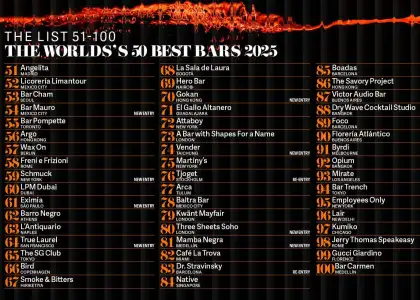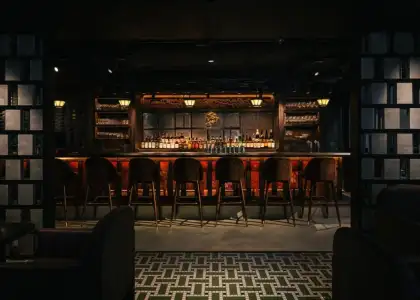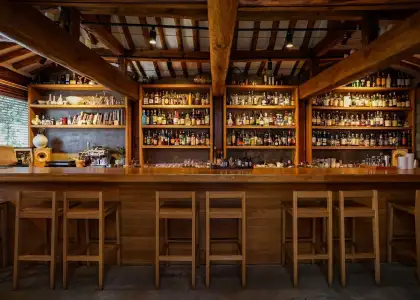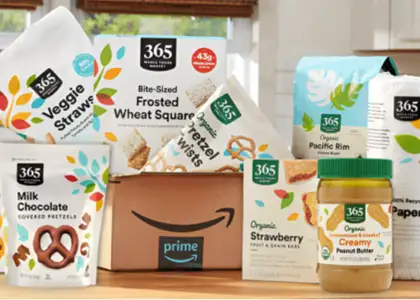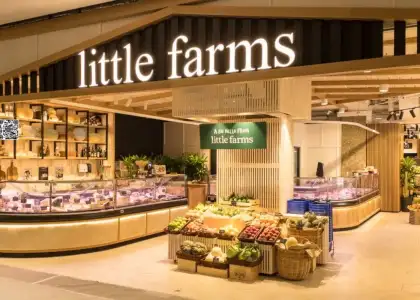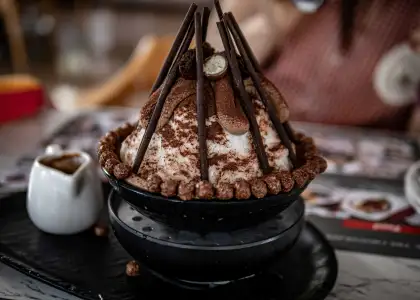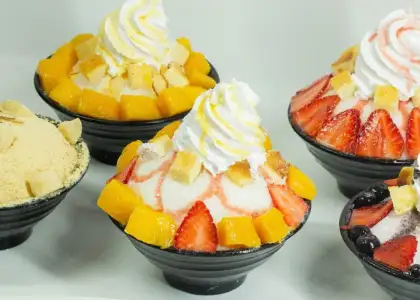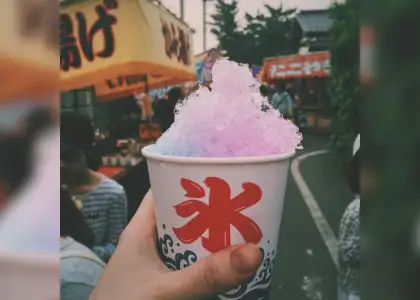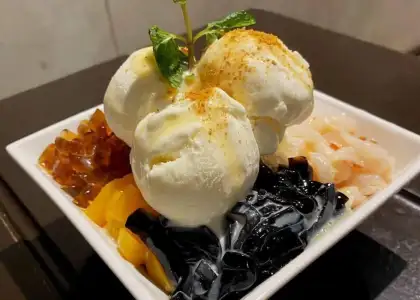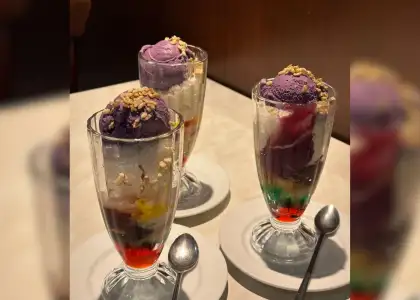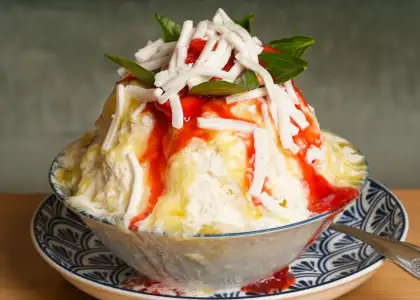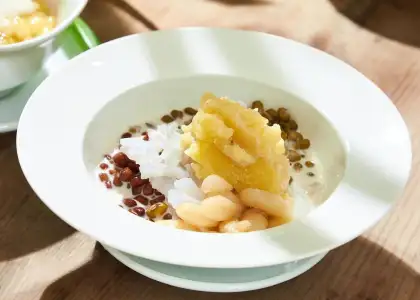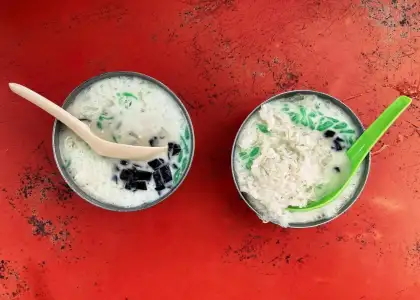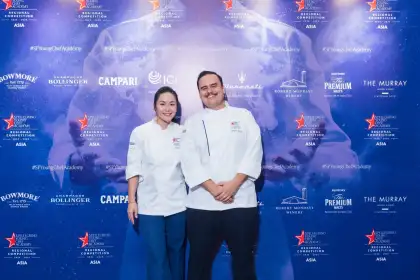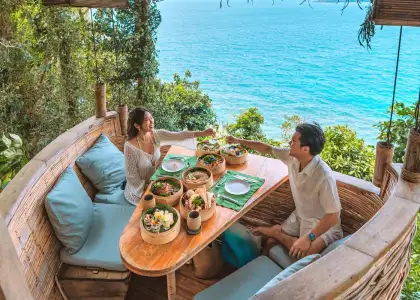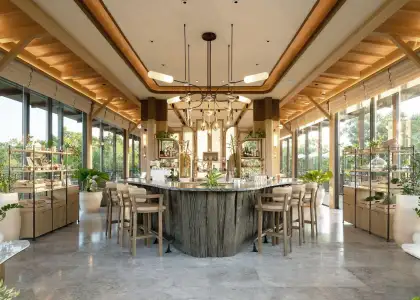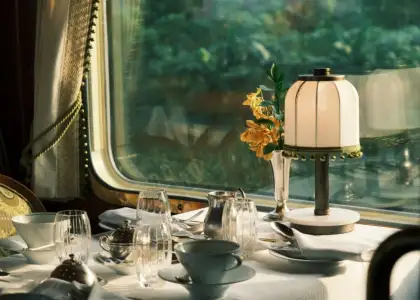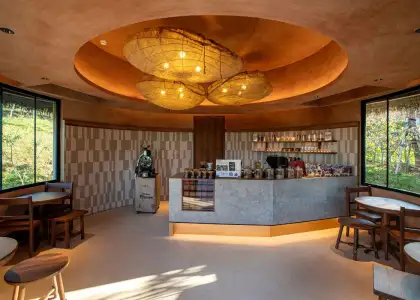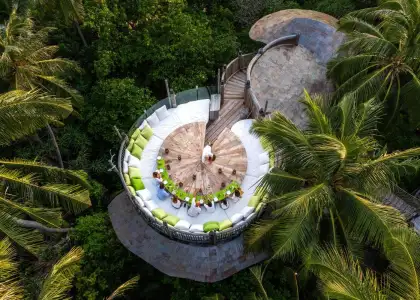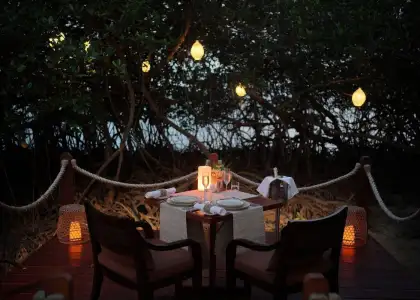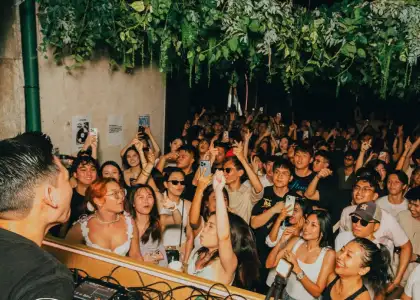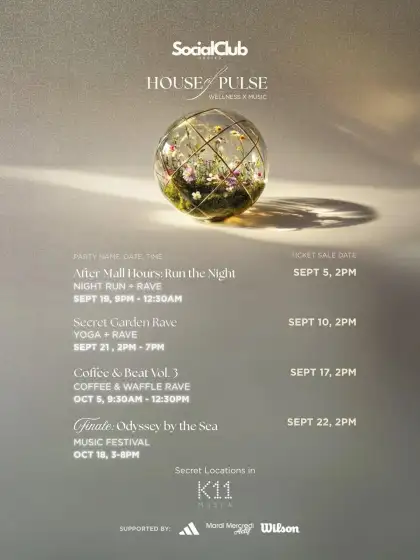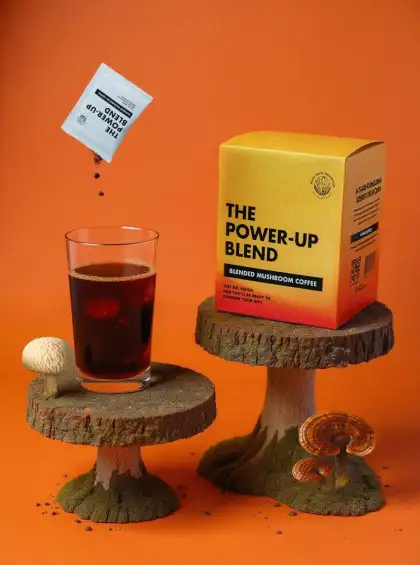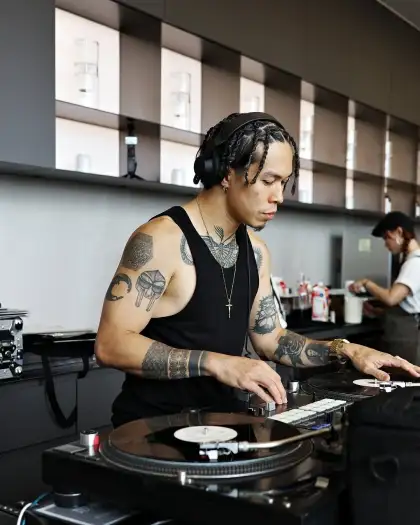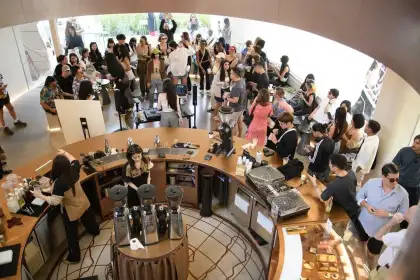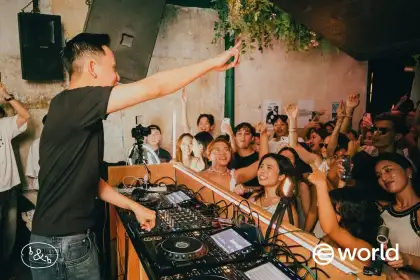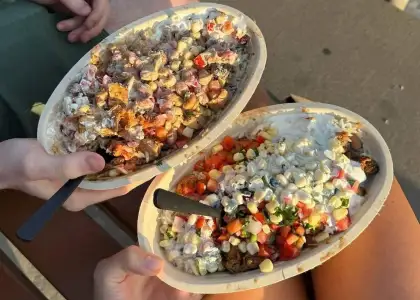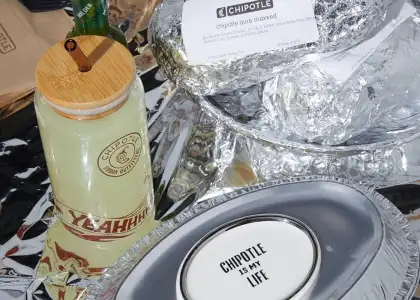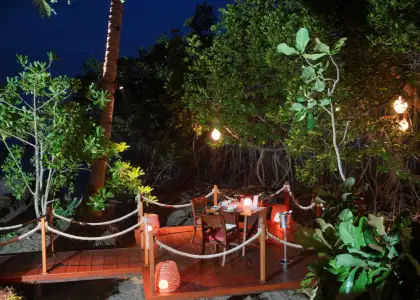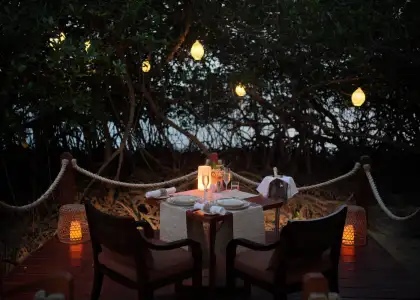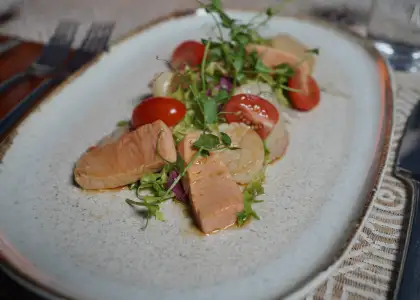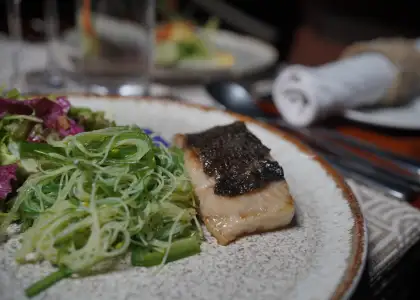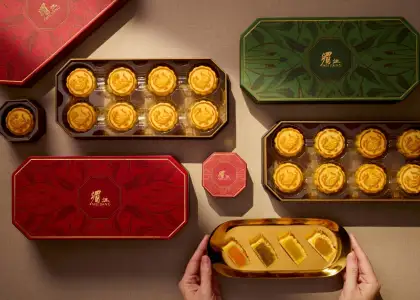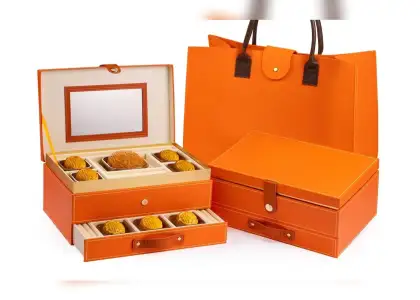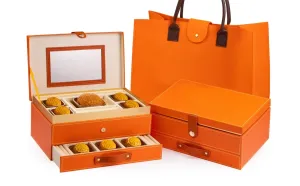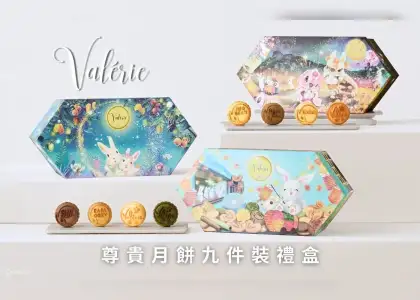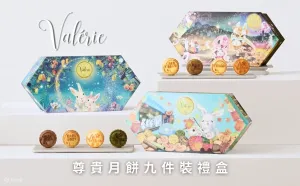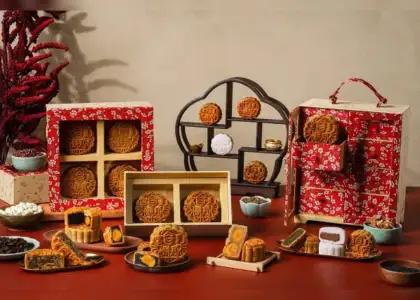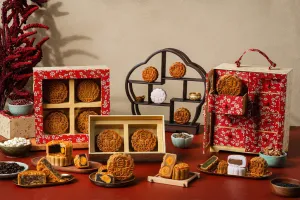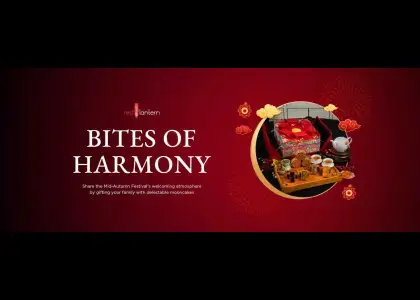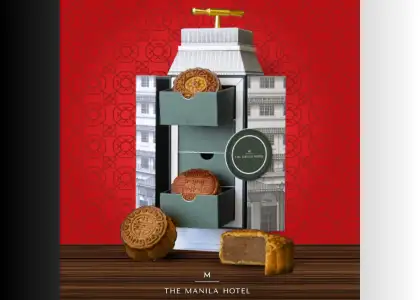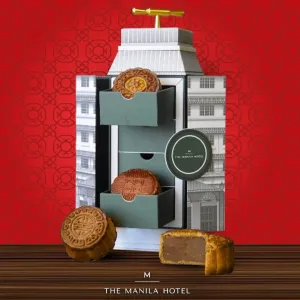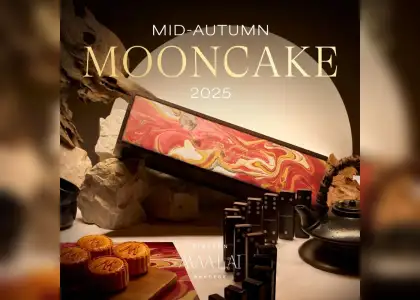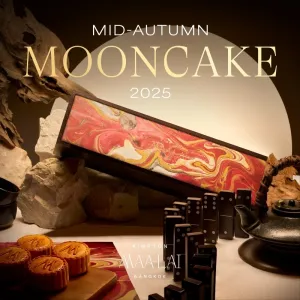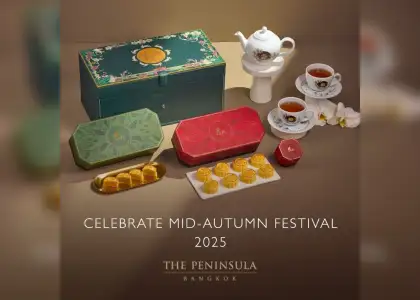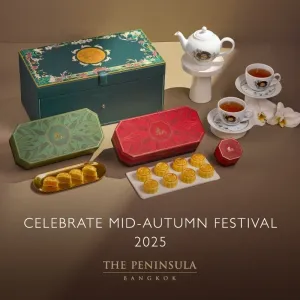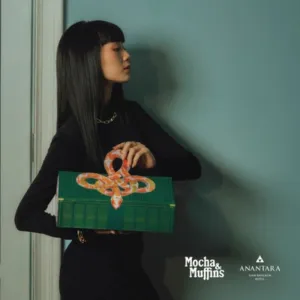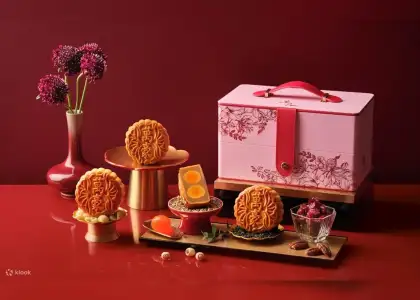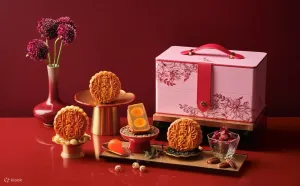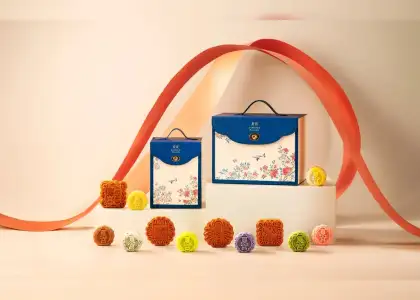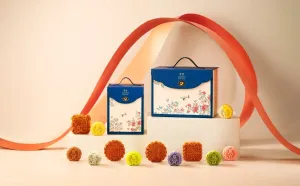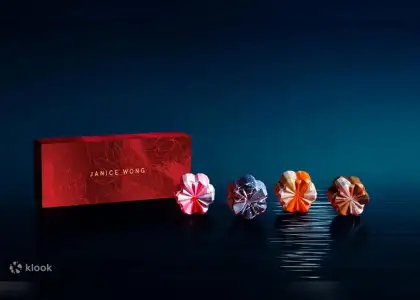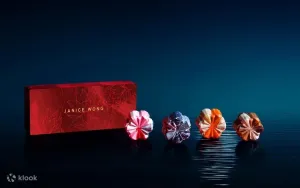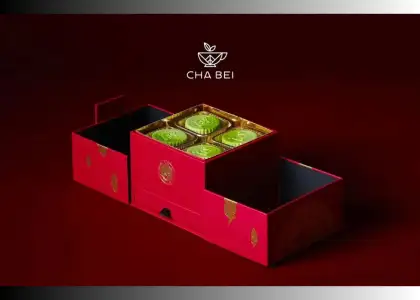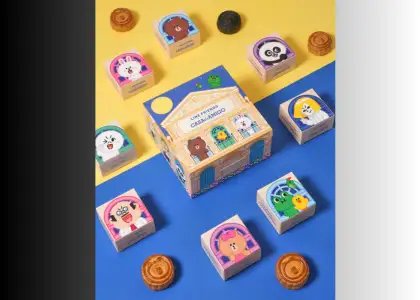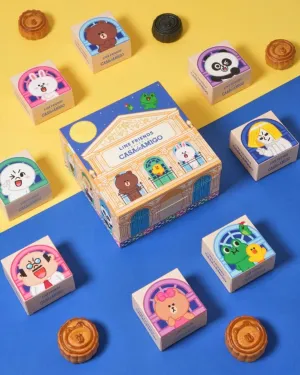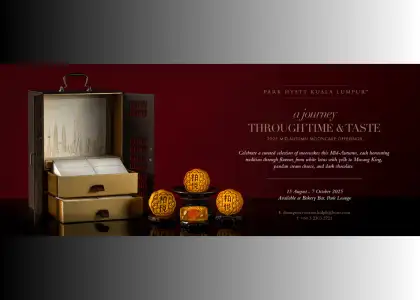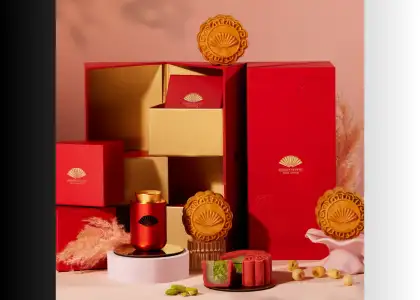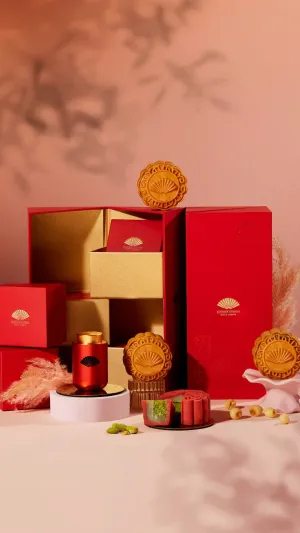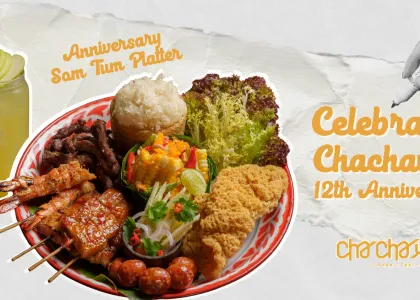Yes, Chef! Chef Ton on Taking His Award-winning Thai Cuisine International
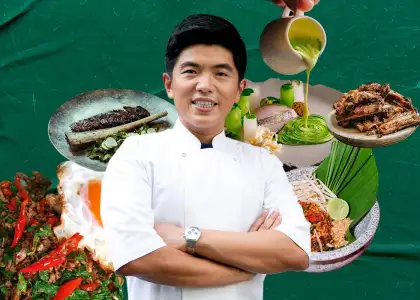
Asia is one food-crazy continent! We take great care to pick restaurants based on culinary vibes, rankings in international gourmand guides, mentions in magazines, Instagramability, and added allure. Yes, Chef! features the region’s chefs' stories of love and labour in kitchens, which has made some of our restaurants the next big thing in Asia.
Multiple Asia’s 50 Best awards, Michelin stars, and nationally televised cooking show appearances are only a few mentions from the lengthy list of accolades that follow Chef Ton Thitid Tassanakajohn. As the Executive Chef and owner of Bangkok’s very best, Le Du, as well as Baan, Nusara, Mayarai, Phuket’s Samut, and now Hong Kong’s Niras, Chef Ton is the helm of some of the world’s most prestigious kitchens that are dedicated to showcasing the magnificence of Thai cuisine in full display.
Raised on homestyle dishes cooked by his mother and grandmother, Chef Ton's culinary journey began at home. This passion led him to pursue his national cuisine as a full-time passion, and he became the only Thai chef with two of his restaurants on the renowned Asia’s 50 Best Restaurant list. His training years in New York saw him get a start in the world of fine dining, garnering expertise in preparing Western cuisines, as well as a taste for the vino thanks to his successful pursuit in becoming a Certified Sommelier (CS) from the respected Court of Mater Sommelier.
Fresh from the inauguration of Niras in Hong Kong’s K11 Musea complex, Chef Ton discusses with The Beat Asia his vision of elevating Thai cuisine, his efforts to introduce and represent Thai cuisine to a global audience, and the legacy he is building for the next generation of Thai chefs.

Congratulations on opening your first restaurant in Hong Kong! What first attracted you to this city, and why did you choose it as the place to introduce Niras?
Hong Kong is one of the most vibrant and most exciting food scenes in the world. There's no other place that has so many good restaurants in such a small area, the highest density of amazing restaurants in the world. So, to be a part of that is something that's very, very amazing.
What we try to present at Niras is something super simple, to represent the best Thai food in a modern way. Niras is almost like the outpost of Le Du, and that's what we want to present to Hong Kong.
Thanks to the popularity of Thai cuisine around the world, many international diners seem to have an existing impression of famous Thai dishes. How do you approach creating concepts and menus for the Hong Kong market that play with their expectations and knowledge of Thai food?
People always ask me ‘do you adjust anything for the locals?’ and I always answer ‘no, not at all.’
I think Hong Kong customers are already quite knowledgeable about Thai cuisine, and really appreciate Thai cuisine. At all my restaurants in Thailand, we have so many Hong Kong people come and visit. They like the taste, and we are taking it to Hong Kong, so we will keep it as original as possible. I really believe that the Hong Kong people will embrace that.
Of course, the menu [itself] will be different. We keep the DNA, but that’s something [else] that people can explore [as Niras continues to develop]. Even if they come to Bangkok for Le Du, they can still go back to try Niras and get a different experience. It’s the same identity and same ideas, but it’s different dishes and different cooking. So hopefully, that will keep them entertained!
While in New York, you gained experience cooking in contemporary American fine dining (Eleven Madison Park), French New Americana (The Modern), and French fine dining styles. How have these experiences informed your cooking philosophy when it comes to cooking Thai food?
We’re bringing in [Western] technique and ideas, and [are] playing around with a deep understanding of Thai cuisine. We’re hoping to elevate Thai cuisine, not in terms of flavour, history, or culture, but in terms of the cooking technique itself. You know how to cook your meat better, make your sauce better, and all that kind of stuff. That, I think, is the add-on to the cuisine.
That’s what we brought into Le Du and Niras, and hopefully people can appreciate that. The taste is still very Thai. I’m not changing or twisting much, but the combination of how we cook it and present it is different of course.

Did you ever feel like you had to represent Thai cuisine and being Thai in those foreign contexts?
I hope so! I think every time I open a restaurant, do an event, or host a cooking demo wherever I am around the world, what I hope people can have is a little bit more of an understanding of what Thai food is and [gain appreciation for] the true tastes of Thai cuisine. Hopefully, all the people I meet around the world can have more love towards Thai cuisine – that's what I want.
Some of them may have never been to Thailand, and after they try [my food] and we [talk], they’re very interested in coming to Thailand. For me, that’s a plus as well. To represent the cuisine and represent my country.
Has there been a particularly memorable destination for you where the population aren’t very familiar with Thai cuisine, or where there aren’t many Thai restaurants?
The furthest and most unique place I’ve went to for a cooking demo was Nigeria. It’s a country where, I would say, 99% of the audience had never been to Thailand. To introduce the flavour of Thailand to them created a lot of excitement and was something quite special for me.
You mentioned the generalized impression many people had of Thai food as a culture of only ‘street food’ – what other misconceptions about Thai cuisine were you faced with? And how did you respond to them?
Usually, people see Thai food as street food that’s cheap and spicy. It’s true, in some circumstances, but I want people to enjoy the other side of Thai food as well.
I want them to enjoy the beautiful combination of flavours. Of course, a part of it is spicy, but then there is also salty, sweet, sour, and bitter. Street food is very famous, but I want people to also know we also have refined cuisine in Thai cuisine as well. We have royal cuisine, we have fine dining, now we have modern Thai dining – we have different kinds of Thai cuisine I want people to appreciate.
Have you ever encountered a creative fusion of or new interpretations of Thai food that impressed you?
One of the young chefs that caught my attention is [doing] something very unique. The restaurant is called POTONG, located in [Bangkok’s] Chinatown (Yeowaraj). [Chef Pam] is a young female chef doing Thai-Chinese, innovative cuisine. [Using] food that only exists in Thailand, she takes that inspiration and creates something quite new and unique.

You’ve been awarded with multiple stunning accolades from both the Michelin Guide and Asia’s 50 Best, what was the journey behind striving for these prestigious awards and mentions?
Don’t get me wrong, I’m very happy with all the accolades and everything, but at the end of the day, my team and I have created this history, and hopefully this history is for Thai cuisine. To make people recognize that Thai chefs and Thai cuisine can make it in the same level as any other cuisine.
I want to inspire the new generation of Thai chefs in Thailand and around Asia, to know that when you stick to your roots and love your cuisine, you can get there. That side was the most fulfilling thing for me. Awards come and go, numbers go up and down, but once you leave a mark for this younger generation – I think that’s something even more important.
Hopefully we set the bar today, then the generation in the future can accomplish even more. We create this path; we create these opportunities for them to grow even bigger than ourselves.
Do you have any words of advice for aspiring chefs who wish to follow in your footsteps in continuing the legacy of Thai cuisine?
One thing they have to know is what they believe in. Don’t just cook because this thing is cool, or this thing is trendy. Really find your love and passion in representing yourself and your cuisine, then follow that.
Did your experience with the awards circuit affect how you approached judging on Top Chef Thailand and Kitchen War Thailand?
For me, being a judge is not to “judge” or punish people. Out of that show, we have created a strong representation of the cuisine we have, and the local talent [we have]. Hopefully we can shine a light on [the talent], make them grow.
Even the winner of season one (of Top Chef) now, she’s very famous. She has the Michelin Star, she has a 50’s Best [award] as well, and that’s what we want to see. Of course, the show is entertainment, but at the same time, you can make it meaningful for the industry as well by finding someone you can really believe in and putting them [up] to grow to a different level, a level where they can’t imagine they could be on.
Any other cooking shows you would like to bring to Thailand?
Let’s see, (laughs) I think Hell’s Kitchen would be fun!

Looking forward to an announcement on that! We’ve seen you introduce a few different distinct concepts: elevated homestyle cooking in homage to family recipes, backyard eats, a wine bar, contemporary Thai fine dining, and more. What’s next?
We’ll see. I keep exploring myself and my ideas all the time and try not to repeat myself. To expand the world and the variety of Thai cuisines that could possibly represent [us], because I’ve always believed that there is no one right way to approach it. There’s hundreds, thousands, of [ways].
I only have 10 different kinds of concepts, and that’s only 10 ways to approach one cuisine! Hopefully I can make it to 100 in my lifetime, so we’ll see. Maybe some more casual concepts...some fine dining...but definitely something in the pipeline.
Similarly, where to next?
Many great cities in the world and in Asia. I’m not sure yet, but hopefully we can have something in China, the Middle East. My dream is to go back to New York and have a restaurant [there], so hopefully that can happen as well.
Fantastic, thank you for speaking with us! And congratulations,yin-dee dûay kha, once again.
Thank you, khop khun mak khrup!
This interview has been edited for length and clarity
Keep up with Chef Ton at @cheftonn
Enjoyed this article? Check out our previous Yes, Chef! articles here.
Get the latest curated content with The Beat Asia's newsletters. Sign up now for a weekly dose of the best stories, events, and deals delivered straight to your inbox. Don't miss out! Click here to subscribe.



